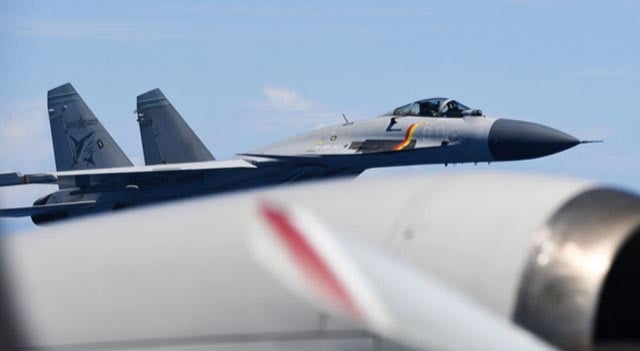News Flash
News Flash

TOKYO, June 12, 2025 (BSS/AFP) - Tokyo said Thursday it had expressed "serious concerns" to Beijing after Chinese fighter jets flew dangerously close to a Japanese military patrol plane in the Pacific last weekend.
The incident followed the sighting of two Chinese aircraft carriers sailing in the Pacific together for the first time, including in Japan's economic waters.
Japan said this week that the aircraft carriers' activity -- described by China as "routine training" -- showed the expanding geographic scope of Beijing's military.
A Japanese defence ministry spokesman told AFP on Thursday that Chinese fighter jets had flown "unusually close" to the Japanese patrol plane.
On Saturday, a Chinese J-15 fighter jet from the Shandong aircraft carrier followed a Japanese P-3C patrol plane for 40 minutes, then on Sunday two J-15 jets did the same for 80 minutes, the spokesman said.
"During these long periods, the jets flew unusually close to the P-3C, and they flew within 45 metres" of the patrol plane at the same altitude on both days, he said.
On Sunday, the Chinese jets cut across airspace around 900 metres in front of the Japanese patrol plane -- a distance that a P-3C can reach within a few seconds at cruising speed, the spokesman added.
"Such abnormal approaches can lead to an accidental collision, so we have expressed serious concerns" to the Chinese side and asked them to prevent a repetition, a defence ministry statement said.
It said no Japanese military personnel had been injured.
A second defence ministry spokesman told AFP the Japanese message was delivered through diplomatic channels and between officials from the neighbours' defence ministries.
A similar incident was last reported over a decade ago in May and June 2014, when Chinese Su-27 fighter jets flew within 30 metres (100 feet) of Japan's military planes.
Daisuke Kawai, director of the University of Tokyo's economic security and policy innovation program, told AFP earlier this week that the timing of the aircraft carrier movements could be linked to US-China economic tensions.
"Beijing calculated that the United States would be less willing or able to respond militarily at this precise moment, seeing it as an opportune time to demonstrate its expanding military capabilities," he said.